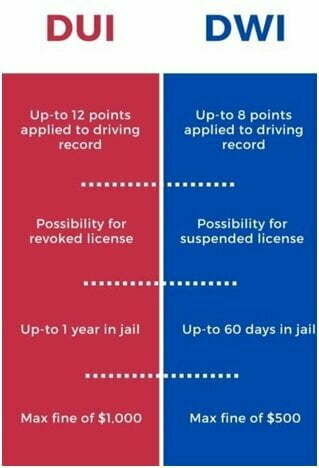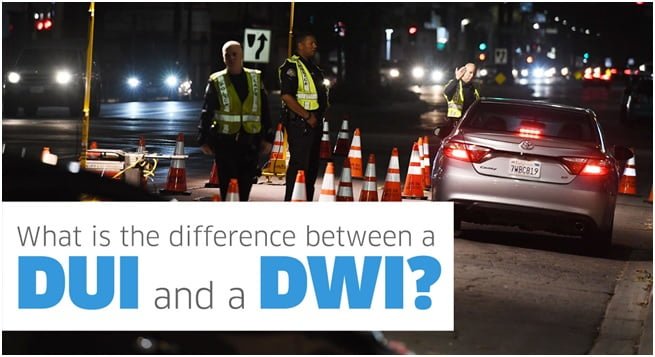What is meant by DUI and DWI?
The acronym “DWI” refers to the crime of operating a motor vehicle while under the influence of alcohol or drugs.
DUI is an abbreviation for “Driving under the Influence,” which is synonymous with “Driving While Intoxicated” (DWI) but more commonly refers to drunk driving.
Both driving while intoxicated (DWI) and driving under the influence (DUI) refer to the same criminal violation, however, DWI is more generally used to include a wider range of impairment levels.
Read More; Midas Credit Card Reviews: A Comprehensive Guide 2023
Are DWI and DUI the same?
Although they share certain similarities, DWI and DUI (Driving under the Influence) are two separate offenses that include driving while impaired by alcohol or drugs.
Driving while intoxicated (DWI) refers to driving while under the influence of drugs, whereas driving under the influence (DUI) refers particularly to driving while under the influence of alcohol.
The terms are synonymous in some jurisdictions and have the same legal weight. In some places, driving under the influence (DUI) may refer to less severe offenses, such as having a lower blood alcohol content (BAC) level or being a first-time offender, while DWI may refer to more severe offenses.
Here’s a comparison of DWI vs DUI in table form:

| DWI (Driving While Intoxicated) | DUI (Driving Under the Influence) |
| Describes the act of driving under the influence of alcohol or drugs | Specifically refers to driving under the influence of alcohol |
| More commonly used as a general term for drunk driving offenses | Often used for less severe offenses, such as having a lower blood alcohol content (BAC) level, or for first-time offenders |
| Can carry serious penalties, including fines, imprisonment, license suspension, and mandatory alcohol education classes | Can carry serious penalties, including fines, imprisonment, license suspension, and mandatory alcohol education classes |
Note: The specific laws and definitions may vary depending on the jurisdiction.
Both terms refer to a crime that carries substantial consequences, such as fines, jail time, license suspension, and required alcohol education programs, and are therefore often used interchangeably.
Can you get a DUI and DWI at the same time?
Yes, it is possible to receive both a DUI and DWI at the same time.
In some jurisdictions, a person can be charged with both a DUI and DWI if they are found to be operating a vehicle while under the influence of both alcohol and drugs.
Additionally, even if a person is only under the influence of alcohol, they may still be charged with both a DUI and DWI if the specific laws in their jurisdiction use the terms interchangeably, or if the terms refer to different levels of intoxication.
Regardless of the specific charges, both a DUI and a DWI carry serious consequences and can have a significant impact on a person’s life, including fines, imprisonment, license suspension, and mandatory alcohol education classes.
Here is a detailed FAQ on DUI and DWI:
What is the legal BAC limit for DUI/DWI offenses?
The legal blood alcohol content (BAC) limit for DUI/DWI offenses is typically 0.08% in the United States, but it can vary depending on the jurisdiction.
What are the penalties for a DUI/DWI conviction?
Penalties for a DUI/DWI conviction can include fines, imprisonment, license suspension, mandatory alcohol education classes, and an ignition interlock device on your vehicle. The specific penalties may vary depending on the jurisdiction and the severity of the offense.
Can a DUI/DWI affect my insurance rates?
Yes, a DUI/DWI conviction can have a significant impact on your insurance rates, as insurance companies consider you to be a higher-risk driver. Your rates may increase for several years after the conviction.
Do I need a lawyer for a DUI/DWI case?
While you are not required to have a lawyer for a DUI/DWI case, it is highly recommended, as a DUI/DWI conviction can have serious consequences. A DUI/DWI lawyer can help you navigate the legal system and potentially reduce the charges or penalties you face.
What is the difference between a DUI and DWI?
DUI stands for “Driving Under the Influence” and refers to operating a vehicle while under the influence of alcohol, while DWI stands for “Driving While Intoxicated” and refers to operating a vehicle while under the influence of alcohol or drugs. In some states, the terms are used interchangeably and have the same legal consequences, while in others, the terms may be used to describe different levels of intoxication, with DUI being used for less severe offenses.
What is the legal blood alcohol content (BAC) limit for a DUI/DWI offense?
The legal BAC limit for a DUI/DWI offense is typically 0.08% in the United States, but it can vary depending on the jurisdiction. Some states have lower BAC limits for commercial drivers or drivers under the age of 21.
Can I be charged with a DUI/DWI if my BAC is below the legal limit?
Yes, it is possible to be charged with a DUI/DWI even if your BAC is below the legal limit. If a law enforcement officer determines that you are impaired by alcohol or drugs, you can still be charged with a DUI/DWI.
What happens during a DUI/DWI stop?
During a DUI/DWI stop, a law enforcement officer will typically ask you to perform a field sobriety test and provide a sample of your breath or blood for a BAC test. Based on the results of these tests, the officer will determine if you are impaired and whether to charge you with a DUI/DWI.
Read More: Harbor Freight Credit Card Review: A Comprehensive Guide 2023
Can I get my license reinstated after a DUI and DWI conviction?
Reinstating your license after a DUI/DWI conviction depends on the specific laws in your jurisdiction and the circumstances of your case. In some states, you may be able to have your license reinstated after serving a license suspension, completing a mandatory alcohol education program, and paying a reinstatement fee.
Can a DUI/DWI be expunged from my record?
The process for expunging a DUI/DWI from your record varies depending on the jurisdiction, but it is often possible to have the charge reduced or removed after a certain amount of time has passed. An experienced DUI/DWI lawyer can guide the expungement process in your state.
